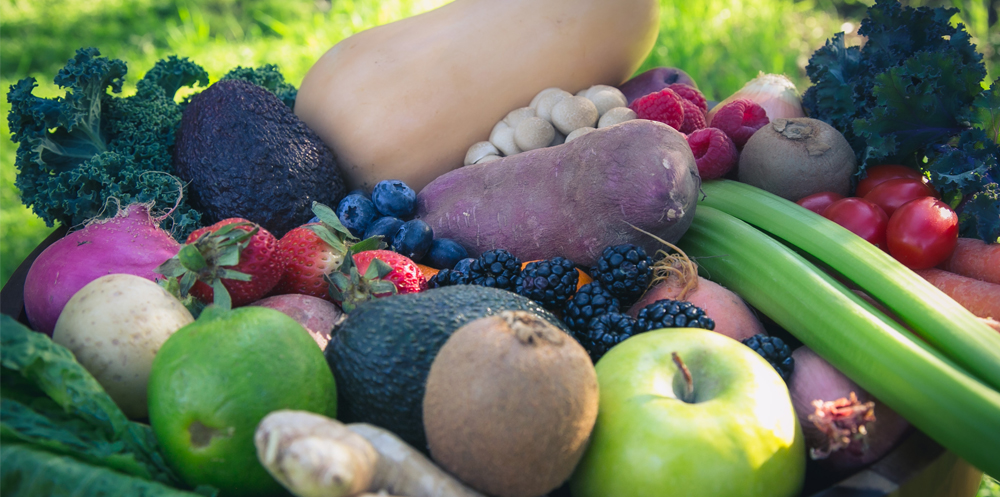As of today, there have been 30.24 million cases of the novel Coronavirus, COVID-19, in the United States, with 548,000 deaths.
A recent study found that 63% of COVID-19 hospitalizations (and many of those deaths) could have been prevented if our society had better metabolic health. We have known from early on that heart disease, diabetes, and other metabolic diseases top the list of risk factors for complications, but the additional risk factor of obesity was responsible for nearly a third of the hospitalizations.
In his book Unconventional Medicine, Chris Kresser, shares some shocking statistics:
- 6 in 10 Americans have a chronic disease; 4 in 10 have multiple chronic diseases
- 70% of Americans are overweight; 40% are obese (and rising since COVID-19)
- 60% of the calories Americans consume come from ‘ultra-processed food’
- Over 1/3 of Americans are getting fewer than six hours of sleep per night
Another recent article looked at a number of studies about “long-COVID” symptoms and the role of autoantibodies in those experiencing the long-lasting effects. Those experiencing “long COVID” are effectively showing signs of auto-immunity. Even ‘healthy’ people can have auto-antibodies for a long time without knowing it. All it takes is a few of these in our body plus a compromised gut (which many of us have and don’t know it) and a trigger (a virus or other major stressor), and wham… your body’s immune system goes into hyperdrive. This means that more people than we realize have underlying conditions that are not readily apparent.
How did we get here?
It’s likely different for everyone, but a few key factors are at the heart of it:
- Many live in food deserts where fresh, local, and minimally processed foods are difficult to find and seem unaffordable in comparison to cheap fast food.
- We are inundated in the grocery stores and through advertising with products that are manufactured to be ‘hyper-palatable’ and in turn, create higher risk for food addiction. These food-like products are things you may eat, but are devoid of actual nutrition.
- We are so overly stressed in our work and our lives that ‘convenience’ foods seem easier to feed ourselves than whole, nutrient-dense foods. I also find in my practice that a lot of people actually do not feel confident in their cooking abilities and lean towards packaged foods as a default.
- Stress is one of the number one factors that compromises our health. Poor nutrition, environmental toxins, lack of sleep, work, relationship and major events (like natural disasters and pandemics) can all lead to inflammation in the body which, in turn, leads to chronic metabolic diseases, including auto-immunity, over time.
- Sedentary lifestyle was a major concern before COVID-19, and now it’s even more concerning. Only 21% of adults meet the Physical Activity Guidelines.
- Racial disparities are real and require real change at the community level. These changes take time. For instance, obesity affects people of color and those of lower socioeconomic status more often than other groups, while obesity in children is now becoming epidemic.
- I could go on…
But let’s get to what we can do about it. And I don’t mean what can you do if you are privileged enough to buy supplements. Guess what? You can’t supplement your way out of poor eating, unhealthy lifestyle, and disparate living situations.
This disease is not going anywhere; it will be here the same as the flu, the common cold, Epstein-Barr, herpes, and any other viral disease that mutates to stay alive. Many will get vaccinated but will need to continually get boosters to stay up to date on the many variants. Regardless of whether you choose to vaccinate, we cannot rely on medication alone to keep us healthy. You cannot outrun severe illness and early death if you continue to be metabolically unfit.
RESILIENCE
The most important thing for us all to focus on is becoming RESILIENT.
Resilience is the ability to recover from stress, and not just recover quickly, but to be stronger for the next time.
In my course, The Resilient Family, I teach about four foundations for becoming resilient .
FORTIFICATION
The first foundation is fortification. In this blog series, I will be sharing about fortification specifically around four quadrants: Body, Mind, Relationships, and Spirit.
In Part 1, we are going to focus on the BODY, specifically your metabolic health, including nutrient sufficiency, digestion, immune health, and physical fitness.

DETOXIFICATION AND ABSORPTION
In order to fortify anything, you first need to detoxify from what does not serve and have the ability to absorb what does.
Detoxification does not require going on a cleanse necessarily. Our organs know how to detoxify if we support them to do so regularly. Our major organs of detoxification are our digestive tract (elimination), liver, respiratory system, lymphatic system, kidney/urinary tract,and our skin. If these systems are not working efficiently, we will have a difficult time eliminating toxins and invaders effectively. For instance, our liver is designed to do a number of functions, including making insulin to support blood sugar regulation as well as detoxify our blood. If we continually ingest foods that have little nutritional value or are high in sugar and low-quality fats, it is likely that the liver will be working overtime and will struggle to work efficiently. Over time, this may lead to metabolic diseases like diabetes, heart disease, and cancer.
Absorption requires us to take in the basic nutrients our body needs, including both macro- and micronutrients. We require a balanced ratio of proteins, fats, and carbohydrates, as well as vitamins and minerals.
In numerous studies, five basic vitamins and minerals, that when sufficient, were shown to be more likely to prevent severe complications and death from COVID-19.
Vitamin D (also requires magnesium and Vitamin K to also be absorbed efficiently)
Vitamin C
Vitamin A
Zinc
Glutathione
Unfortunately, in the US, we have an epidemic of deficiency in Vitamin D, and we are significantly deficient in A, C, and magnesium. This does not mean you need to run out and purchase supplements. For some of these (especially Vitamin D and A), it is important to be tested before supplementing because there are negative consequences for taking in too much.
Nutrient dense food is always your first best option. I encourage you to check out Dr. Elisa Song’s Guide to Immune Support. It lays out the foods and dosing of supplements for the most important nutrients you need to strengthen your immune system. It is my go-to guide, and I hope it becomes that for you, too.
It really boils down to eating nutrient-dense whole foods:
- High quality proteins: beef, poulty, lamb, eggs, fish, dairy, legumes, nuts.
Organic, grass-fed, wild-caught is always preferred for meat, fish, eggs, and dairy, as there are fewer toxins and more nutrients.
For many this might feel out of their budget, so I encourage only purchasing these high quality varieties sparingly and choose bones to create broth and ground meats on occasion. You don’t need it every day, but a little every week goes a long way to getting those nutrients in.
- High quality fats: Butter, oils, nuts, seeds.
When choosing oils, my favorites are avocado, butter, duck fat, and coconut for cooking. I use olive, sesame, and sunflower for dressing. Stay away from oils like canola, cottonseed and other commercial seed oils as they are actually inflammatory and non-nutritive. There is a reason they are cheap, but they will cost you plenty in the long run.
- Whole, unprocessed or minimally processed grains: rice, quinoa, buckwheat, oats, millet. Notice that bread, pasta, crackers and cookies aren’t on this list… that is because these are highly processed and high glycemic, which impacts your blood sugar regulation and in turn your weight and risk for diabetes. It doesn’t mean you can’t ever have them, but use them very sparingly.
- Rainbow of vegetables and starches: this list can go on and on, but Dr. Deanna Minich has wonderful resources all about eating a rainbow. I love her work and find her approach fun and creative. I challenge you to load your plate with lots of color, at least five if you can J
And here’s another awesome resource, in case you are a family who wants to give a garden to a family in need: www.milliongardensmovement.org. This is one way to make a difference in the lives of families to get them out of their food deserts.

IT STARTS IN THE GUT
In order for your body to absorb the nutrients you are taking in, it is imperative that your gut is in good working order. Our microbiome is where 80-90% of our immune cells are created…what?! Yes… if your gut is not digesting efficiently, forget about resilience. If you have any of the following symptoms regularly, it is likely related to gut dysfunction, and I highly encourage you to consider seeing a health practitioner for support:
Headaches, Brain Fog, Attentional Challenges, Acne, Rashes, Eczema, Indigestion, Food Sensitivities, Diarrhea, Constipation, Bloating, Cramping, Fatigue, Confusion, Joint Pain, General Inflammation, Auto-Immune Disorder
Taking antacids, antihistamines, NSAIDS, beta-blockers, anti-depressants, etc., are just masking the root cause of these challenges. These medications will also compromise your microbiome further. There are certainly times when they are necessary to get you through, but long-term use is no solution for true resilience.
Healing starts with eliminating the foods, medications, stress, and toxic burden on our systems first. Then, it requires adding in all of the good stuff like nutrient-dense foods, rest, self-care, and sometimes supplements to get you back on track.
It’s simple, but it’s not always easy. Having the support of a practitioner and/or a community of resilience warriors with you along the way can set you up for success.

MOVE IT, LIFT IT, CARRY IT
Finally, our food is only one piece of the puzzle for fortification. Exercise is another. We take in calories, but we must burn them, too. Remember the impact of our sedentary lifestyle…
Visceral fat is the fat that wraps around your abdominal organs and is the cause of inflammation in the body that can lead to heart disease, Alzheimer’s, Type 2 Diabetes, and stroke. Diet and exercise is important, but the type of exercise that creates resilience is what to consider here. The most important exercises I have found to be supportive are the following:
- Moderate aerobic exercise (walking, running, biking, swimming)
- Weight training (kettle bells, lifting weights)
- Resistance training (yoga, pilates, bands, rowing)
- Flow and martial arts (parkour, free running, martial arts)
And too much of good thing is also true for exercise. We actually find that extreme athletes and those who do too much exercise actually show signs of stress, inflammation, and gut dysfunction. More and harder is not better. Our bodies are designed to move, jump, push, lift, and carry. Do that. Do what your body naturally does. Get your heart rate up, but also build muscle. It is one of the most protective things we can do for ourselves.
AND…
Fortification through nutrient sufficiency and movement is just one part to building resilience. Stay tuned for Part 2 of the Resilient Family: Stress and the Nervous System Series.
If you would like to build resilience for you and your family today, The Resilient Family Self-Study Course is available now. Click here to learn more and register. We are also building a community of families who have taken the course to keep you up-to-date on the latest research, connected to like-minded resilience warriors, and supported through your own journey.
If you liked what you read, sign up for my newsletter to receive monthly blogs and offerings. Follow me at @amysalonerprofessional on both Facebook and Instagram and share with your friends!

